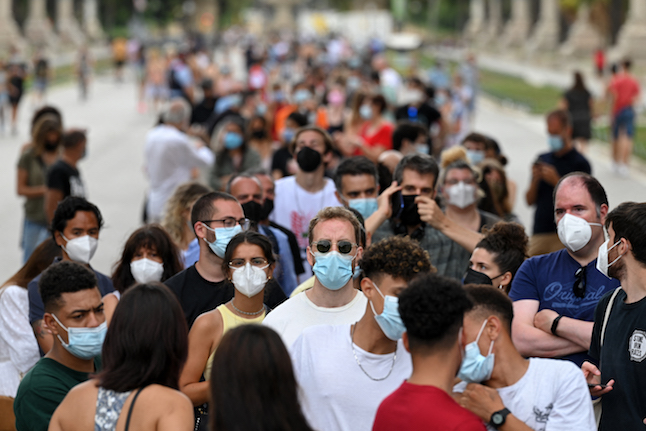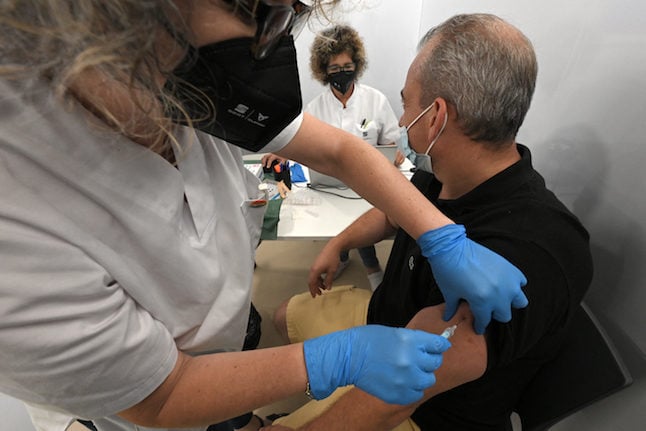More than 61 percent of Spain’s population of 47 million is fully vaccinated, one of the highest rates among large European Union nations – ahead of Italy’s 57.8 percent, 56 percent in France and 55.2 percent in Germany. The figure in the United States is 50.3 percent.
One of the cornerstones of Spain’s successful vaccine drive is trust in the health system, Josep Lobera, a sociology professor at the Autonomous University of Madrid, told AFP.
And that means there is little vaccine hesitancy. “We have an advantage with respect to other nations, because confidence in vaccines in general, especially childhood vaccines, is traditionally higher than in other European nations,” said Lobera, who sits on the government’s vaccine strategy committee.
A study by the Imperial College London published in June found that 79 percent of people in Spain trusted Covid-19 vaccines, compared to 62 percent in the US, 56 percent in France and 47 percent in Japan.
Spain has been spared the large protests seen in France and Italy against mandatory vaccines for health care workers, and the creation of a health pass giving them access to routine activities such as dining indoors.
The country did not need to make vaccination mandatory for teachers or other key workers, because “practically everyone gets vaccinated voluntarily”, Education Minister Pilar Alegría told news radio Cadena Ser on Monday.

Take care of family
One recent morning, a long line of people, mainly in their 30s, waited in the scorching sun to get into a mass vaccination centre in Wizink sports arena in Madrid, which operates round-the-clock.
One of those waiting was Ines Gomez Calvo, a 28-year-old graphic designer. She trusted Spain’s public health system “100 percent, 200 percent”, she said.
Set up after Spain returned to democracy following the death of dictator Francisco Franco in 1975, the country’s public health care system offers free universal coverage as a constitutionally guaranteed right. As a result, most Spaniards associate it with modernity, said Lobera.
Close family ties also explain the willingness to get vaccinated in Spain: 55 percent of peopled aged between 25 and 29 still live with their parents.
Alejandro Costales, a 30-year-old lawyer who was waiting to be vaccinated
at the Wizink centre, said this was a way “to care a bit” for his family. “It gives the guarantee that I can go home and not infect them,” he said.
Lobera said it was much harder for young people in Spain to become independent, as job precarity is high. “This means the family acts as a life preserver” during crises, he explained.
Polio trauma
Spain’s traumatic experience with the polio vaccine also helps explain why Spaniards are keen on immunisation.
While several nations began polio vaccination in the mid-1950s, the authorities under Franco waited nearly a decade longer. As a result, thousands of children were infected, causing serious physical disabilities and many deaths.
This negligence on the part of the dictatorship recently led Spain’s leftist government to recognise people who got polio before the immunisation began as victims of the regime.
“It was an absolute disaster,” said Javier García, president of the Cota Cero association representing polio victims.
The 60-year-old, who uses a wheelchair, underwent 17 operations on his legs as a child. He was four years old before he was able to stand up on his own and even then needed orthopaedic assistance.
He had no doubts, then, about getting vaccinated against Covid-19. “It is important that everyone gets it – and the sooner the better.”
READ ALSO: OPINION: ‘Not all parents in Spain are in favour of their children getting the Covid vaccine’



 Please whitelist us to continue reading.
Please whitelist us to continue reading.
Member comments